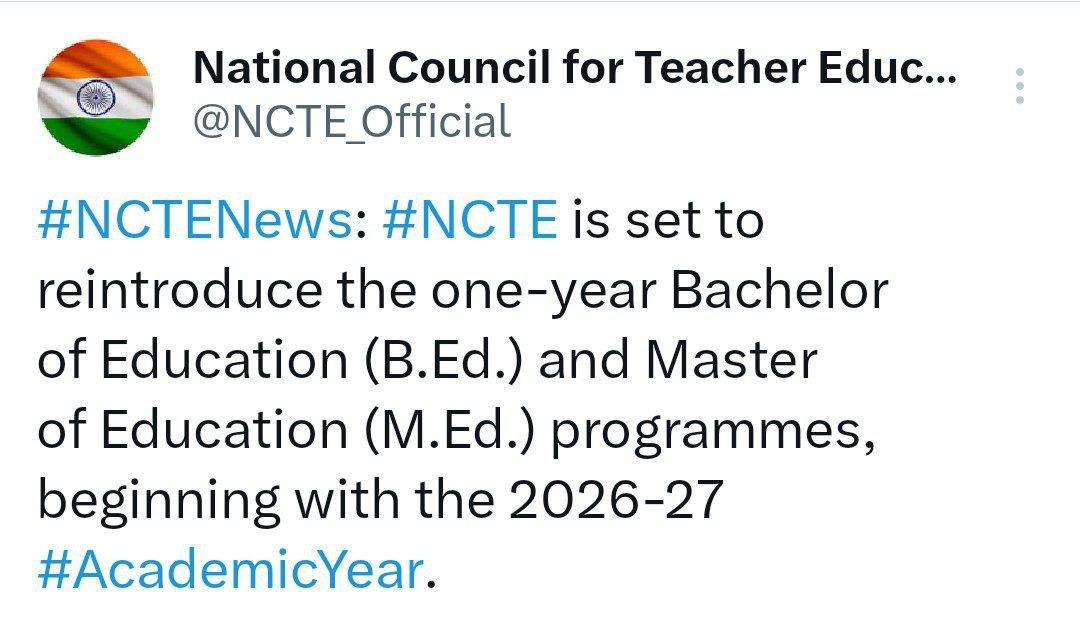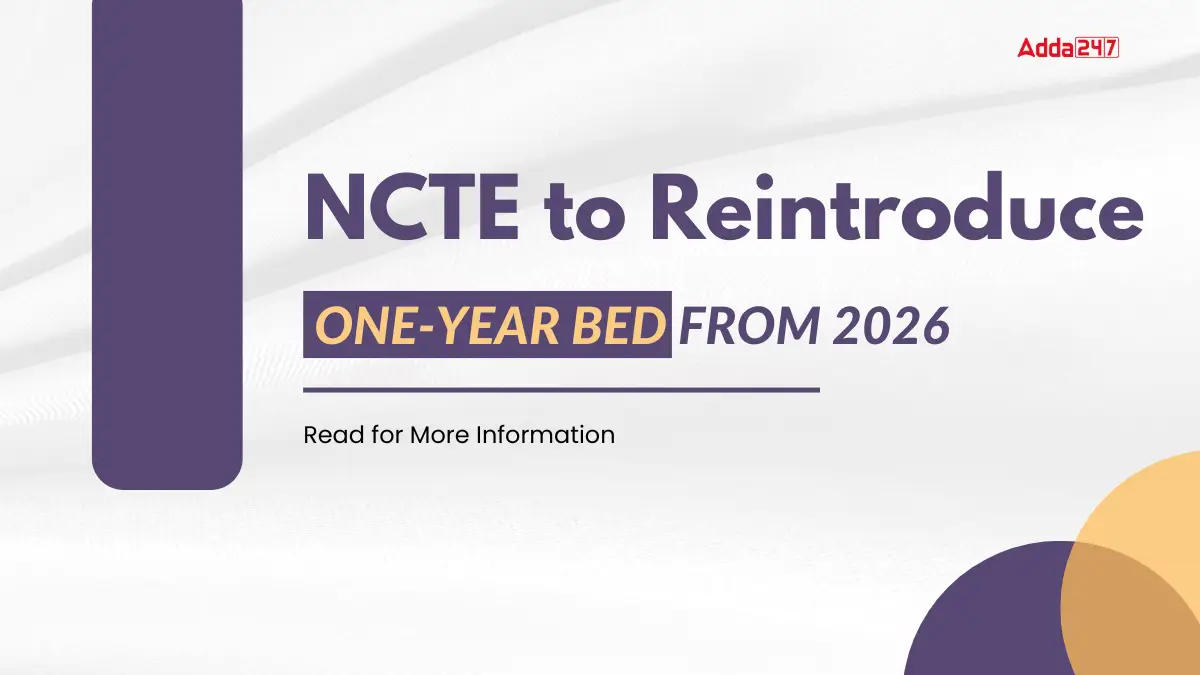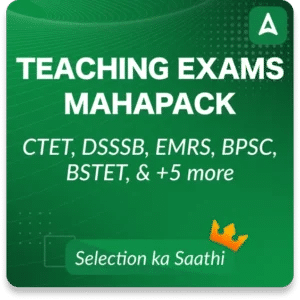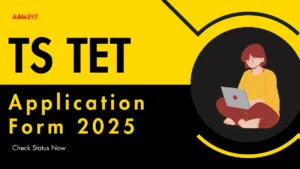Table of Contents
The National Council for Teacher Education (NCTE) has announced a significant reform in teacher education by reintroducing the one-year B.Ed program from the 2026-27 academic year, nearly a decade after it was phased out. This marks a shift from the two-year B.Ed course introduced in 2014, providing a more flexible pathway for aspiring educators. The decision aligns with the National Education Policy (NEP) 2020, aiming to offer multiple entry options into the teaching profession while enhancing the efficiency of teacher training programs in India.
NCTE To Reintroduce One-Year BEd from 2026
The one-year B.Ed program, a key feature of India’s teacher education system until 2014, is set to return from the 2026-27 academic year after being replaced by a two-year program aimed at professionalizing teacher training. While the extended course introduced modules like yoga education and gender studies, it faced challenges such as vacant seats and concerns over curriculum effectiveness.
The NCTE’s decision to reintroduce the one-year B.Ed program aligns with NEP 2020 and the UGC’s National Higher Education Qualifications Framework, which supports a one-year master’s degree at level 6.5. This revamped program will be available only to candidates with a four-year undergraduate or postgraduate degree, whereas those with a three-year graduation degree will still follow the two-year B.Ed course. Additionally, NCTE Introduces One-Year MEd Course, further restructuring teacher education pathways.
Who will Be Eligible for the One-Year BEd Course?
Eligibility for the one-year B.Ed course will be restricted to candidates who have already completed a four-year undergraduate program or a postgraduate degree. This targeted approach ensures that only individuals with the substantial academic backgrounds can enrol in this condensed yet specialized program.
For those with a three-year undergraduate degree, the two-year B.Ed course will remain the standard route to teacher certification. This distinction allows the NCTE to cater to a broad range of individuals interested in pursuing a career in teaching, from fresh graduates to professionals seeking to switch careers.
The one-year course will offer specializations across various educational levels, such as foundational, preparatory, middle, and secondary school education, in line with the NEP’s new school education framework.
NCTE Introduces One-Year BEd Course
Why the One-Year BEd Course Is Being Reintroduced After a Decade?
The reintroduction of the one-year B.Ed course comes after a period of evaluation by the NCTE, which found that the extended two-year program did not yield the expected improvements in teacher education. Despite efforts to professionalize the course, such as introducing a 20-week internship and new subject modules, many institutions faced challenges such as under-enrollment and a lack of effective curriculum updates.
NCTE Chairman, Pankaj Arora, highlighted that the two-year M.Ed program, introduced in 2015, failed to meet expectations, with many seats remaining vacant and the curriculum not evolving as needed. The new one-year B.Ed program, while shorter, will include a more focused approach with specializations in different school levels, which aims to better prepare educators for the evolving demands of modern classrooms.
Additionally, the changes align with the NEP 2020’s vision of flexible learning pathways, which offer multiple routes into teaching, depending on an individual’s educational background and career stage. The Integrated Teacher Education Programme (ITEP) is another significant step in this direction, offering a four-year course for students right after school.
Conclusion
The NCTE’s reintroduction of the one-year B.Ed program marks a pivotal moment in India’s teacher education landscape. By offering a condensed yet specialized course, the NCTE seeks to better equip aspiring teachers with the skills they need while providing flexibility in educational pathways. As the policy continues to evolve, it will be crucial to monitor its impact on teacher quality and the broader educational system. The one-year B.Ed, alongside other initiatives like ITEP, offers a promising future for those entering the profession at various stages of their academic journey.




 Last Minute Preparation Tips for MP TET ...
Last Minute Preparation Tips for MP TET ...
 TS TET Application Form 2025 Out, Direct...
TS TET Application Form 2025 Out, Direct...
 Preparation Strategy to Crack DBT BET 20...
Preparation Strategy to Crack DBT BET 20...














